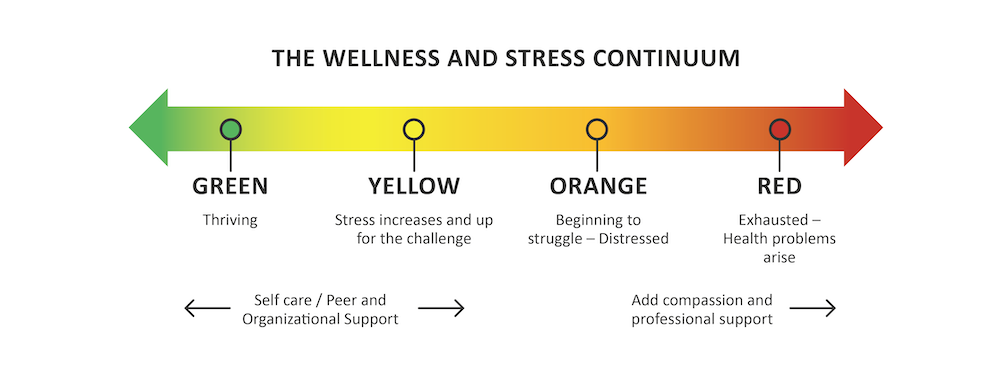
The medical practice environment can be high-pressured, stressful and complex.
Cultivating resilience can help you bounce back from stressful events and minimize the emotional and physical impacts of challenging workplace situations. According to the 2017 CMA National Physician Health Survey, 82% of physicians have high resilience.
Based on the latest guidance from the Ontario Medical Association Physician Health Program and The Ottawa Hospital, these tips can help you monitor and support resilience in yourself and your colleagues:
Take care of the basics
- Get enough sleep, eat well and exercise regularly.
- Breathe. Taking full breaths helps us connect to the thinking part of our brains, not just the reactive parts.
- Unplug. Be the boss of your technology and take a break from the reactive zone.
- Restore. Our culture is always on the go, but our bodies and minds need time to restore. Give yourself the time to rest and recover.
- Assess your own resiliency using the Connor-Davidson Resilience Scale.
Stay connected
- Establish and maintain a social network of trusted friends, family members and colleagues. These people can let you know when you’re not at your best and encourage you to seek support when you need it.
- Practise compassion. Relationships may become strained under high-stress conditions. Understanding, compassion and goodwill will help you relate and connect to others when interpersonal tensions arise.
Stay positive
- Practise self-compassion. Be kind to yourself and don’t judge yourself. Stimulate your vagus nerve to bring down your blood pressure, heart rate and muscle tension and feel better overall.
- Feel and demonstrate gratitude. Thank someone who’s helped you or find a way to pay it forward.
- Laugh. Laughter is proven to be good for our health — but while kids have belly laughs all day, we laugh less as we age.
- Think positive. It’s important to acknowledge your feelings — including the negative ones — but thinking about something good for even 30 seconds a day can change your mood.
- Seek out awe-inspiring experiences. A beautiful sunset or scene or an inspiring person can be good for your health.
Take care of others
- Help colleagues reframe blame. Under pressure, blame and criticism can hinder constructive feedback, problem solving, accountability and team performance.
- Offer referrals to additional resources.
Strategies for health care leaders
Promote psychological safety in the workplace. In keeping with the Ontario Medical Association’s resilience-promoting steps, foster trust and fairness among colleagues and make it safe for all team members to ask questions. Make sure everyone has the opportunity to feel productive and contribute. Monitor and moderate exposure, intensity and duration of high-risk work.
Set up a buddy program to cultivate connections and ensure no one is alone. The Ontario Medical Association suggests grouping physicians in pairs or trios and having them check in with each other as part of their daily routine. The following questions can help guide those conversations:
- How are you managing the basics, such as sleeping, eating and exercise?
- Are you taking time to unwind and recharge?
- How are things at home or work?
- Is there something you felt grateful for or moved by? A challenging moment?
Use the Canadian Armed Forces wellness continuum (below) or a rating system they create themselves to talk talk about and assess their mental/emotional states.

Share coping tips and resources. Support your own well-being and your colleagues’ by providing them with resources such as the ones listed below.
Results from the latest 2021 National Physician Health Survey and more recent physician health and wellness data are available here.
Topics
Are you in distress? Get help now.
